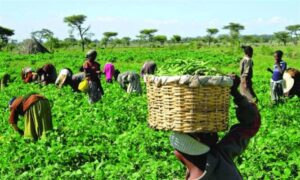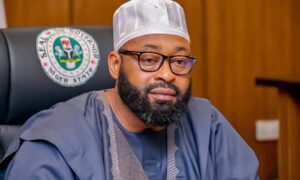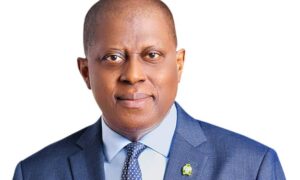Nigeria’s economy expanded by 3.13% year-on-year in the first quarter of 2025, the statistics office said on Monday, following the rebasing of its gross domestic product to better align with the current economic landscape.
The economy grew to 372.822 trillion naira ($243.7 billion) after rebasing, Statistician-general Adeyemi Adeniran, told a news conference in the capital.
The GDP growth at 3.13% in the first quarter, compared with 2.27% in the same quarter last year.
Following the benchmarking of the estimates, the performance of the GDP in Q1 of 2025 was driven mainly by the service sector, which recorded a growth rate of 4.33% and contributed 57.15% to the aggregate GDP,” Adeniran said.
Oil production during the quarter was at 1.6 million barrels per day, compared with 1.57 million bpd in same quarter last year.
Adeniran said the rebasing GDP reflected changes in the country’s economy over time.
“This rebasing exercise… not only involves the change in the base year, which moved from 2010 to 2019 but also includes methodological updates,” he added.
Several economic sectors, including marine, fishing shipping and ports, arts, culture, tourism, and e-commerce, have grown significantly since the last GDP rebasing in 2014, warranting their inclusion, the stats office had said.
The 2014 rebasing had positioned Nigeria as Africa’s largest economy, surpassing South Africa, but the country has since lost ground due to naira devaluations under President Bola Tinubu’s administration.
Tinubu’s lightning reform push in the first weeks of his administration sparked hope that he could finally unleash the full potential of Africa’s sluggish economic giant.
But two years on, the key planks of his economic overhaul – devaluing the naira and scrapping subsidies – have triggered the worst cost-of-living crisis in a generation and are yet to deliver faster growth.













